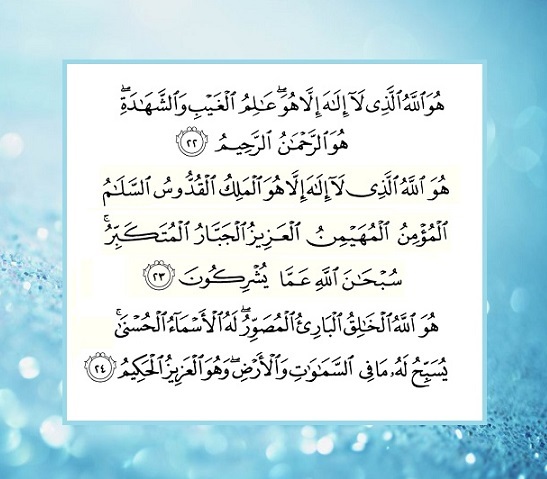Bismihi Ta'ala
1.) For the purpose of Istinja, take along water and lumps of
clay. To use three lumps of clay or three stones is Mustahab (preferable). If
circumstances prevail, then this will be sufficient.
Due to (clay lumps), difficulties are experienced in flushing the
toilets. Thus, the Ulama have advised that toilet tissue should be used so that
the flush is not spoilt.
2.) It was the practice of
Rasulullah (Sallallaahu ‘alayhi wasallam) to visit the toilet with his head
covered and with his shoes on.
[Alaikum besunnati]
3.)
Before entering the toilet
recite this Dua:
Note: Mullah Ali Qari (Rahmatullahi ‘alayh) has written in Mirqaat that
with the blessings of the recitation of this Dua, a veil is cast between the
person visiting the toilet and the evil Jinns. Hence they are unable to see
one’s private parts.
He has also written that the (ب) of the word
can be read with either a dhamma (Pesh) or a Saakin (Jazm).
He has also written that the (ب) of the word
can be read with either a dhamma (Pesh) or a Saakin (Jazm).
[Mirqaat - Vol. 1, pg. 361]
4.)
When entering the toilet, enter
with the left foot.
[Alaikum besunnati quoting from
Ibn Majah]
5.) When removing the undergarment,
it is better to lower oneself towards the ground as much as easily possible and
thereafter remove the garment.
[Tirmidhi, Abu Dawood]
6.)
When coming out from the
toilet, step out with the right foot first and then recite this Dua:
7.) Before entering the toilet,
remove any ring etc. upon which any Ayat or the name of Rasulullah (Sallallaahu
‘alayhi wasallam) is visible.
[Nasai]
If a Ta’weez is covered with a cloth and sewn, it will be permissible to
enter the toilet while wearing it.
8.)
When relieving oneself, do not
face the Qibla nor turn the back towards it.
[Mishkaat , Tirmidhi , Ibn
Majah]
9.) When relieving oneself, do not
speak except out of absolute necessity. Also, do not engage in any Zikr whilst
in the toilet.
[Mishkaat, Abu Dawood - pg. 3]
10.)
Be extremely careful and ensure
that droplets of urine and stool do not splash upon one as most of the
punishment of the grave is due to not protecting oneself from urine splashes.
[Bukhari, Ibn Maajah]
11.) Do not touch the private parts
with the right hand during Istinjaa. Use the left hand for this purpose.
[Bukhari, Abu Dawood]
12.)
Where a toilet is not
available, relieve oneself behind some barrier so that one is not exposed to
others.
[Abu Dawood, Ibn Majah]
13.) Search for soft ground (when
relieving oneself in the open) so that urine does not splash but is rather
absorbed into the ground.
[Tirmidhi, Abu Dawood]
14.)
Sit and urinate. Do not urinate
while standing.
[Tirmidhi]
15.)
After urinating, if one needs
to dry himself he should do so behind some barrier (i.e. wall etc.)
[Behishti Zewar]
16.)
Perform Wudhu according to the
Sunnat at home.
17.)
Perform the Sunnats at home before going to the Masjid.
If there is no time for this, the same could be performed in the Masjid.
Note: In today’s times, due to Sunnats being neglected, it is preferable
to perform them in the Masjid.
[Kamaalate Ashrafiya]
From "BEAUTIFUL SUNNATS OF THE BELOVED
NABI (SALLALLAAHU 'ALAYHI WASALLAM)
By Hadhrat Moulana Shah Hakeem Muhammad Akhtar Saheb
(Daamat Barakaatuhum)












